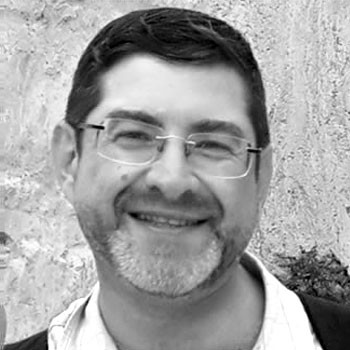
IlyaReznik, MD
neuropsychiatrist
- Board-certified specialist in Adult Forensic & Clinical NeuroPsychiatry at MaReNa Diagnostic and Consulting Center, Israel
Dr.
Ilya Reznik has superior educational and professional record and
documented contributions to the field of neuropsychiatric research, such
as publications and other innovative activities.
Dr. Reznik has published many original papers (including controlled
trials), reviews and case reports in leading peer-reviewed journals in
field of clinical psychiatry and neuropsychopharmacology. His current
main interest is in the field of the medical use of cannabis and
cannabinoids, especially for various neuropsychiatric illnesses, such as
Chronic Pain Syndrome, Post-Traumatic Stress Disorder (PTSD), OCD,
Tourette syndrome, Parkinson’s and Alzheimer diseases etc.
During last 6 years he coordinates the activity of Israel National
Forum/Association for Medical Cannabis Research & Treatment. He is
Associate Member of The Canadian Consortium for the Investigation of
Cannabinoids (CCIC), Member of International Cannabinoid Research
Society (ICRS). In 2013 he was elected to Board of Directors,
International Association for Cannabinoid Medicines (IACM) and promotes
educational and international activity within IACM.
Lectures and workshops on our seminars
| 2015 | Practical issues on using the Cannabis as a Medical substance | Abstract |
|
Marijuana, botanically known as cannabis, has been around for thousands years. The medicinal and recreational uses of the cannabis have been known from the ancient times and marijuana was used as a legal form of the plant medicine till the1937-1941. Since that time, marijuana was included to the upper part (Schedule 1) of the list of controlled substances and its circulation (in any form) was announced as illegal and prohibited. During the last decade some European (Holland, Spain, Germany, Austria), American (Canada, several States in the USA) and other countries (Israel), agreed to re-acknowledge the positive properties of marijuana and decriminalized it’s usage for some certain medical conditions/indications. Nevertheless, the wide (and growing!) spreading of cannabis consumption among the population, mostly for recreational purposes, enhances the demand for better definition between medicinal and other usage of various forms of cannabis. The international clinical and regulatory experience, accumulated in the countries, already established the Medical Cannabis/Marihuana Programs, should be carefully and systematically studied and critically assessed, in order to elaborate the better (in the means of the Quality Control and Accessibility) model(s) for the reducing of public stigma, proper education of the health care professionals and to promoting medicinal uses of the cannabis. Based on my large clinical experience in this field, I will review (in short) the current Medical Cannabis/Marihuana Programs and will provide some suggestions and practical tips on wise (careful and safe) usage the Cannabis as a valuable Medical substance, especially for the patients with the various neuropsychiatric disorders. |
||
| 2015 | Practical issues on using the Cannabis | info |
|
The workshop will provide insight to whom treatment with cannabis should be suggested and to whom, probably, not. |
||
| 2019 | “To be, or not to be, that is the question”. Shared decision-making for cannabis medicines | Abstract |
|
Any health-related decisions should be made in partnership between the patient and the doctor. Both parties take steps to participate in the process of decision making. There is growing evidence that the public want more involvement in treatment decisions. Shared decisions may be harder to achieve when the patient is faced with a shocking, serious or life threatening diagnosis.During recent years, more and more clinical research affirms that cannabis can safely and effectively alleviate symptoms of serious and chronic medical conditions. Nevertheless, many patients, their relatives and caregivers are still hesitate, whether try is or not try a cannabis as a valuable remedy. They are routinely apply for this to their health care providers, but, unfortunately, despite all previous and, most important, recent achievements in this area, majority of physicians are unable to advise their patients anything clear and prefer to avoid or even ignore any discussion on this topic. In contemporary patient-centered care, an individual’s specific health needs (including cannabis-based therapy) and desired health outcomes are the driving force behind all health care decisions. Facing the further ongoing and increasing progress in cannabinoid medicine, responsible clinicians should educate themselves in this are in order to be able to maintain professional dialog and to practice well-balanced comprehensive shared decision making with their patients upon their demands and even to initiate a cannabis-based treatment to suitable for it patients. |
||